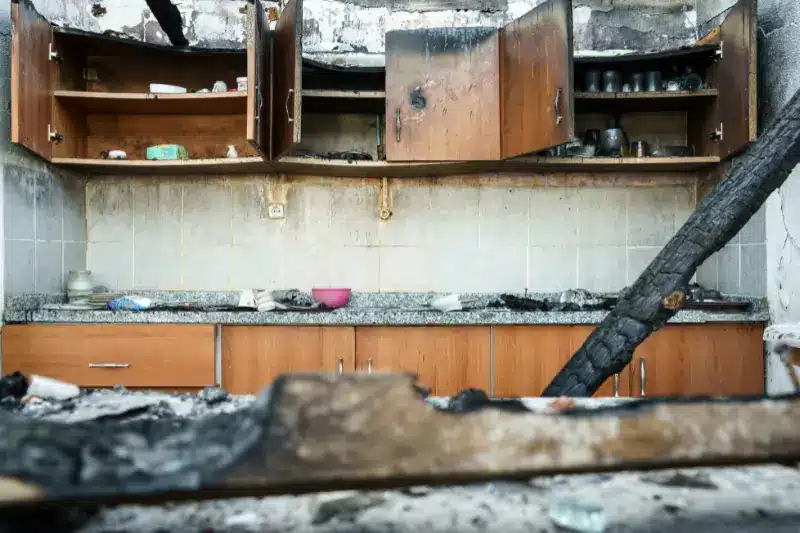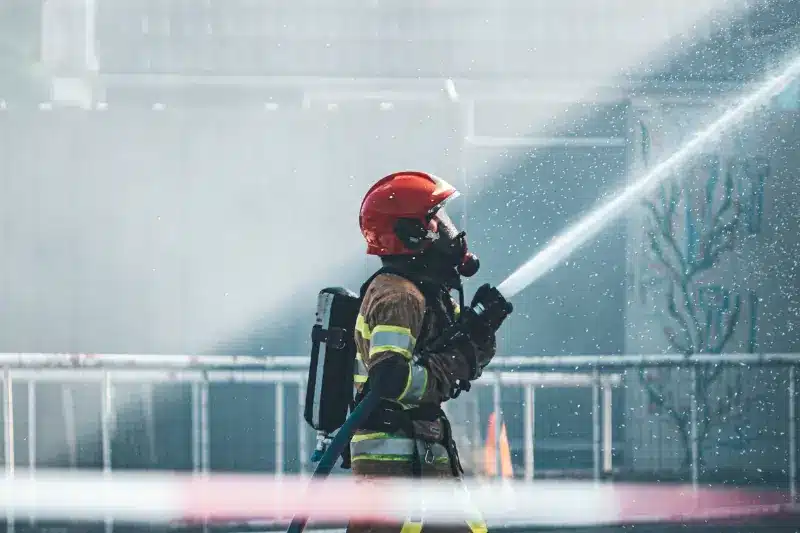
Experiencing a house fire can be one of the most devastating events in a homeowner’s life. Beyond the emotional toll, you’re now faced with tough decisions about what to do with your property. If you need to sell your house fast in Columbia, know that you’re not alone in this situation. Many homeowners find themselves needing to sell their fire-damaged houses for various reasons – whether it’s financial constraints, relocation needs, or simply the desire for a fresh start.
Selling a fire-damaged house presents unique challenges that differ from traditional home sales. The damage may range from minor smoke damage to severe structural issues, which can significantly affect the property’s value and appeal to potential buyers. The emotional and practical challenges of dealing with fire damage, such as facing charred walls, can be overwhelming. However, there are still viable options for homeowners looking to sell their fire-damaged properties without the stress and expense of complete restoration.
When a property suffers fire damage, its market value typically decreases substantially, leading to a decreased market value due to buyer perceptions and stigma associated with fire damage. The extent of the decrease depends on several factors:
Fire damage can affect nearly every aspect of a home, from the obvious charred areas to hidden problems like:
According to the National Fire Protection Association, even after restoration, properties with fire history may sell for 10-25% less than similar homes without such damage. This reality makes it important to understand all your selling options before making a decision. Additionally, it is crucial to disclose fire damage to potential buyers to maintain transparency and adhere to state laws.
Before deciding how to proceed with selling your fire-damaged house, you’ll need a thorough assessment of the damage and associated costs. This evaluation will help you understand what you’re dealing with and make informed decisions about your next steps. Negotiating payouts with insurance companies to ensure fair compensation for fire damage repairs is crucial during this process.
Start by hiring professional inspectors who specialize in fire damage. They can provide detailed reports on:
Involving the fire department in assessing the damage is also important. Their report should be complemented by a thorough inspection from professionals to ensure a comprehensive understanding of the property’s condition. Most insurance policies cover fire damage, with exceptions for arson and negligently maintained structures.
The cost of repairing fire damage varies widely depending on the severity. Minor smoke damage might cost a few thousand dollars, while major structural repairs could run into hundreds of thousands. Repairing fire damage can cost between $3,107 and $51,243, with the national average around $27,175. When a home suffers fire damage, homeowners typically face these categories of expenses:
It’s important to note that repairing fire damage often uncovers additional problems that weren’t initially apparent, leading to cost overruns. This uncertainty makes selling a fire-damaged property “as is” to cash home buyers an attractive option for many homeowners who don’t want to deal with the unpredictability of repairs.

Smoke damage can be a significant issue when selling a fire-damaged house. Even if only a small portion of the home caught fire, smoke can permeate the entire property, affecting walls, ceilings, and personal belongings. Addressing smoke damage is crucial to enhance the appeal of your fire-damaged home and make it more attractive to potential buyers.
Professional cleaning and deodorization are essential steps in removing smoke damage. Specialized treatments, such as thermal fogging or ozone smoke removal, can effectively eliminate lingering smoke odors that have penetrated clothing, furniture, and carpets. Professional fire damage restoration companies clean smoke damage, remove soot, and deodorize. These methods neutralize the smoke particles, ensuring the unpleasant smell does not deter prospective buyers.
In addition to odor removal, professional cleaning can restore the appearance of parts of the home that didn’t catch fire but were affected by smoke. This can significantly improve the overall character of the property, making it more appealing and potentially increasing its market value.
By investing in professional cleaning to address smoke damage, you can present a more inviting and livable space to potential buyers, ultimately facilitating a smoother and more successful sale of your fire-damaged house.
When a home fire occurs, many homeowners are surprised to discover that water damage often exceeds the actual fire damage. The fire department's primary goal is to extinguish the blaze as quickly as possible, which typically means using thousands of gallons of water. While necessary for safety, these firefighting efforts can create extensive secondary damage throughout your property.
Here's how firefighting water can affect your home:
Companies that buy fire-damaged houses understand this dual nature of damage and factor fire and water restoration needs into their assessments. When selling fire-damaged properties, disclosing the full extent of water damage is just as important as documenting the fire damage itself.
Fire restoration professionals typically address water damage first, as it continues to worsen the longer it remains. If your insurance policy covers fire damage, it should also cover water damage from firefighting efforts, but it's important to document everything thoroughly for your insurance adjuster.
Many homeowners find that working with a real estate attorney who specializes in damaged property sales can help navigate complex insurance claims while preparing to sell. House buyers like High Noon Home Buyers specialize in damaged properties and have relationships with restoration experts who can properly assess fire and water damage before making an offer.
Remember that even after visible water is removed, moisture can remain hidden within walls and structures for months, continuing to cause deterioration and potentially creating health hazards through mold growth. This ongoing risk is another reason many homeowners sell to experienced investors after a home fire rather than attempting complex restoration themselves.

When selling a house with fire damage, transparency is not just ethical—it’s legally required. All states have disclosure laws requiring sellers to inform potential buyers about previous fire damage, even if repairs have been completed. Failing to disclose fire history can lead to lawsuits and financial liability long after the sale closes. It is important to talk to your real estate lawyer about disclosure laws regarding fire damage.
Prospective buyers are often concerned about potential underlying issues related to the home's history, making transparency crucial.
What you must disclose:
Being upfront about your home’s history builds trust with potential buyers and protects you legally. If you’re working with cash home buyers in Seven Oaks, they’re typically already familiar with handling fire-damaged properties and will appreciate your honesty during the transaction.
Understanding the full scope of repair costs is crucial when deciding whether to repair before selling or sell as is. Here’s how to get accurate estimates: Documentation of damage, securing the property, and filing claims with the insurance company are essential steps in the claims process.
The national average for fire damage restoration costs can provide a benchmark for what homeowners might expect to spend on repairs, helping to set realistic financial expectations.
Remember that the longer a fire-damaged house sits untreated, the worse the damage typically becomes. Water from firefighting efforts can lead to mold, and exposed areas may deteriorate from weather exposure, causing further damage and increased repair costs.
When estimating costs, be sure to consider the difference between:
The gap between these values often determines whether repairing or selling as is makes more financial sense. For many homeowners with bankruptcy or financial hardship, the immediate cash from selling a fire-damaged house without repairs can be more valuable than waiting months for repairs and a traditional sale.
One of the most straightforward ways to sell a fire-damaged house is to work with real estate investors who specialize in buying damaged properties. Companies like High Noon Home Buyers regularly purchase homes that have suffered fire damage, offering several advantages over traditional sales methods:
Selling the house as is allows homeowners to avoid costly repairs and expedite the selling process.
When we buy houses in West Columbia and surrounding areas, we understand the unique challenges fire-damaged homeowners face. Professional investors have experience evaluating fire-damaged properties and can often make fair offers based on the property’s potential after restoration.
When considering investor offers, keep in mind:
For homeowners selling a house in a divorce or other complicated situation, working with investors who understand these sensitive circumstances can make the process much less stressful.

Determining the fair value of a fire-damaged house can be challenging. Several approaches can help you arrive at a reasonable expectation:
Fire damage can significantly impact home value, as visible signs of damage can deter potential buyers and lower the property's worth. Understanding these dynamics is crucial when considering selling a fire-damaged property.
Insurance payouts can also provide guidance on value. If your insurance company has already settled your claim, they’ve established an actual cash value for the damage. This figure, along with the pre-fire value of your home, can help frame realistic expectations.
When selling a fire-damaged property, remember that investors and cash buyers will:
A fair offer will take all these factors into account. Working with reputable local companies like High Noon Home Buyers ensures you’ll receive a fair cash offer based on the true condition of your property.
If you’ve decided to sell your fire-damaged house, you have several options, each with pros and cons:
Thorough documentation during the restoration process can reassure potential buyers and significantly enhance the marketability of the home.
Assessing the extent of the damage to determine necessary repairs can help improve the property's value and attract potential buyers.
For most homeowners with fire-damaged houses, especially those concerned about how our home-buying process works, the third option offers the best combination of convenience, speed, and financial outcome.
When choosing this path:
Companies specializing in buying damaged properties have established processes to make the transaction smooth and straightforward. They handle the paperwork, often cover closing costs, and can typically close in days rather than months.
Selling a house with fire damage presents unique challenges, but you have viable options regardless of the severity of the damage. Understanding the extent of the damage, getting accurate repair estimates, and exploring all your selling avenues will help you make the best decision for your situation. It's also important to practice patient selling, as potential buyers will have numerous questions and may require thorough inspections.
For many homeowners, especially those looking to sell their house fast in Columbia, working with reputable local home buyers like High Noon Home Buyers offers the simplest path forward. Their experience with fire-damaged properties means they can accurately assess value and provide fair offers without requiring you to invest in extensive repairs.
If you’re dealing with the aftermath of a house fire, remember that you don’t have to navigate this challenging situation alone. Professional cash home buyers understand the emotional and financial stress of selling a house in bankruptcy or other difficult circumstances and can provide a compassionate, straightforward solution.
By choosing the right buyer and approach for your specific situation, you can move forward from this difficult chapter with minimal stress and financial strain, allowing you to focus on rebuilding in a new space.
© High Noon Home Buyers. All Rights Reserved | Designed with 💙 by Reibar Marketing